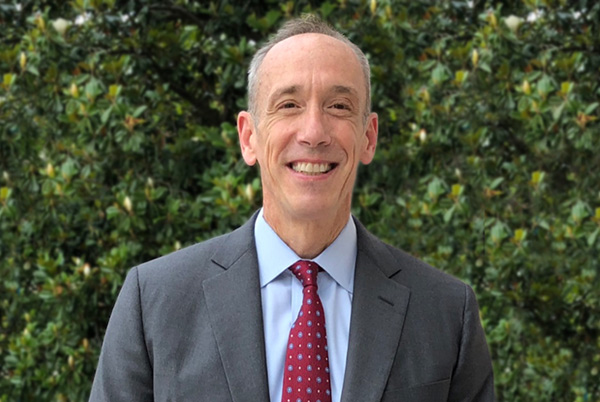The Community College Research Center

The Challenge
Fewer than 40 percent of first-time college students who enrolled in a community college earn a credential from a two- or four-year institution within six years. Eighty percent of entering community college students indicate they want to earn a bachelor’s degree or higher, but just 29 percent transfer to a four-year institution within six years.
The Charge
Community colleges provide critical access to postsecondary education and are uniquely positioned to promote equity and social mobility in the United States. With average tuition and fees that are less than half of those at public four-year colleges, these two-year institutions enroll 38 percent of America’s undergraduates, including the majority of the nation’s low-income, minority and adult college students. Among full-time workers aged 25 and over, the median earnings of associate degree holders in 2016 were 18 percent higher than those of individuals with only a high school diploma.
The Community College Research Center, led for 20 years by founding director Thomas Bailey, now TC’s President, and currently directed by Thomas Brock, Research Professor, conducts research that helps community colleges strengthen opportunities and improve outcomes for their students, particularly those from underserved populations.
In a Nutshell

Community colleges are crucial sites for improving educational equity. We aim to identify policies and practices that enable institutions to counteract social disparities by race and class and promote the success of students from all underserved populations.
The Approach:
Working with community colleges, policymakers, foundations and other partners, CCRC’s interdisciplinary research team conducts quantitative and qualitative studies of community college programs and the students they serve in order to improve students’ experiences and outcomes.
Past Achievements:
- The launch of CCRC in 1996, by Thomas Bailey at the invitation of the Alfred P. Sloan Foundation, put community colleges in the national spotlight. CCRC’s early studies revealed that community colleges were not achieving desired outcomes for students, and prompted a shift in emphasis, from merely providing access to trying to ensure that students earned degrees and graduated with marketable skills.
- In 2015, Bailey and his CCRC colleagues Shanna Smith Jaggars and Davis Jenkins published Redesigning America’s Community Colleges: A Clearer Path to Student Success, which draws on a decade of research on community colleges to make the case for Guided Pathways, a broad set of institutional reforms to improve student outcomes. The book has been used at colleges around the country to lay the groundwork for reform as well as by state policymakers, foundations, and others to frame reform discussions and initiatives, and Guided Pathways has been adopted by more than 350 two- and four-year colleges across the country.
- CCRC has conducted seminal research showing that students assigned to developmental education — non-credit courses for those deemed to be academically underprepared — achieved poorer outcomes than comparable students who did not take those courses.
Current Focus:
- Funded by JPMorgan Chase Global Cities Initiative, CCRC is describing and evaluating the next frontier of the Guided Pathways reform movement: regional efforts in which community colleges partner with local employers, universities and K–12 schools to build cross-sector educational pathways to good jobs in their communities. The CCRC study, conducted in partnership with WestEd, looks at four regions — Rhode Island; Dayton, Ohio; San Antonio, Texas; and Riverside, California.
- CCRC is assessing the impact of using multiple measures (rather than a single standardized test) to assign students at the State University of New York to developmental education courses. With its partner MDRC, the Center has already established that using multiple measures results in fewer students being assigned to developmental courses and higher success rates and more credits earned among those who are assigned. Now, with continuing funding from the Institute of Education Sciences, CCRC will track these students through to graduation. Plans are also in the works to expand the use of multiple measures throughout SUNY, which is the nation’s largest public higher education system.
- Little is known about the experiences of English language learners (ELLs) in community college because, unlike K–12 schools, community colleges don’t identify or track these students. Funded by the National Science Foundation, CCRC is doing a deep exploration of ELLs in the City College of Chicago system. The research will track ELLs out of high school to see how they fare and which programs most benefit them, and to tease out questions such as whether they come equipped with stronger bilingual skills than other students.
- Nearly two million students enroll for the first time in community colleges each year, but relatively few — and far too few underrepresented students — go on to take advanced STEM courses and complete an associate degree in STEM or transfer to a STEM bachelor’s program. Working with higher education agencies in Ohio, Tennessee, and Washington, CCRC is conducting a three-year study, funded by the National Science Foundation, to identify metrics practitioners can use to evaluate the effects of Guided Pathways reforms on STEM programs and produce a practitioner guide on how community colleges can improve access to and completion of STEM programs.
Alumni in High Places:
- Sung-Woo Cho (Ph.D. ’11), Head of Applied Innovations in Artificial Intelligence (AI)², Global Lead for Digital Transformations at Abt Associates
- Michelle Hodara (Ph.D. ’12), Research and Evaluation Manager, Education Northwest
- Melinda Karp (Ph.D. ’06), Founder and Principal of Phase Two Advisory, a nonprofit that helps foundations, nonprofits, and educational institutions determine how to apply their own research and data for maximum impact
- Hana Lahr (Ph.D. ’18), CCRC Senior Research Associate
- Vanessa Morest (Ph.D. ’02, M.Phil. ’01, M.A. ’97), Provost and Vice President for Academic Affairs, Westchester Community College
- Rebecca Natow (Ed.D. ’13), Assistant Professor of Educational Leadership & Policy, Hofstra University
- Vikash Reddy (Ph.D. ’16), Senior Director of Policy Research, the Campaign for College Opportunity
- Olga Rodriguez (Ph.D. ’13), Research Fellow, Public Policy Institute of California Higher Education Center
- Michelle Van Noy (Ph.D. ’11), Associate Director, Education & Employment Research Center, Rutgers University
- Di Xu (Ph.D. ’13), Assistant Professor at the University of California, Irvine, School of Education, CCRC Research Affiliate and Visiting Fellow at the American Enterprise Institute
Partner Organizations:
- Achieving the Dream
- American Association of Community Colleges
- CUNY
- Education Commission of the States
- Education Northwest
- MDRC
- SUNY
- University of California, Santa Cruz
- WestEd
Recent Funders:
- Arnold Ventures
- Ascendium Education Group
- Capital One Foundation
- Bill & Melinda Gates Foundation
- The Kresge Foundation
- Lumina Foundation
- The Andrew W. Mellon Foundation
- JPMorgan Chase Foundation
- National Science Foundation
- Schmidt Futures
- U.S. Department of Education, Institute of Education Sciences